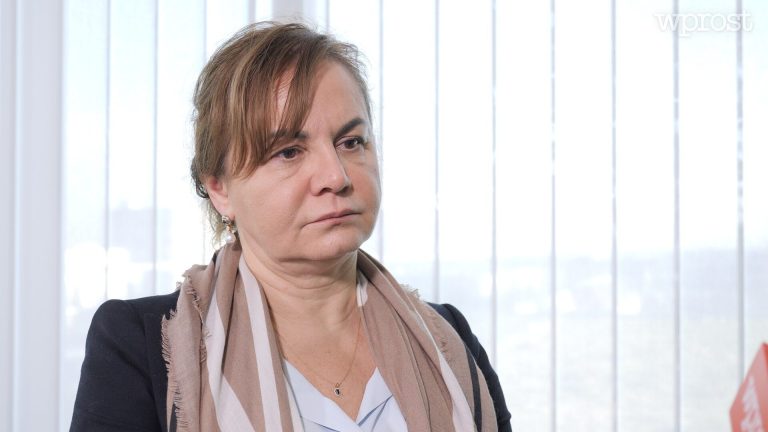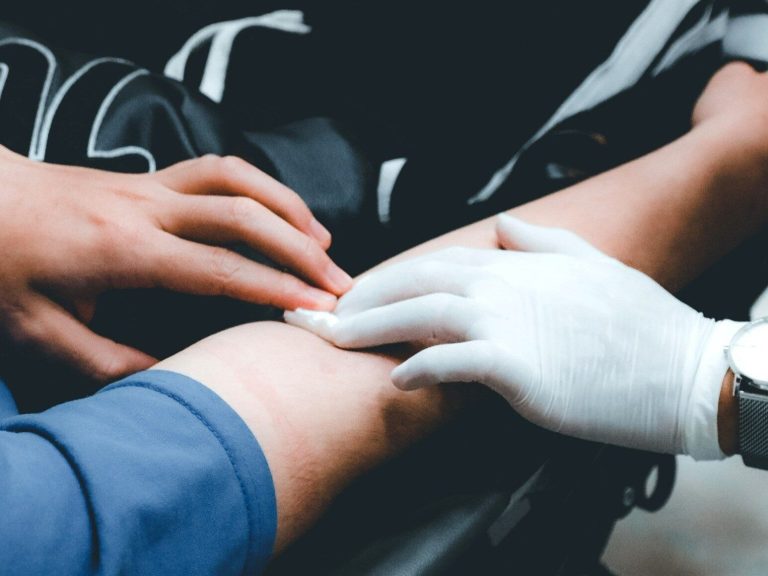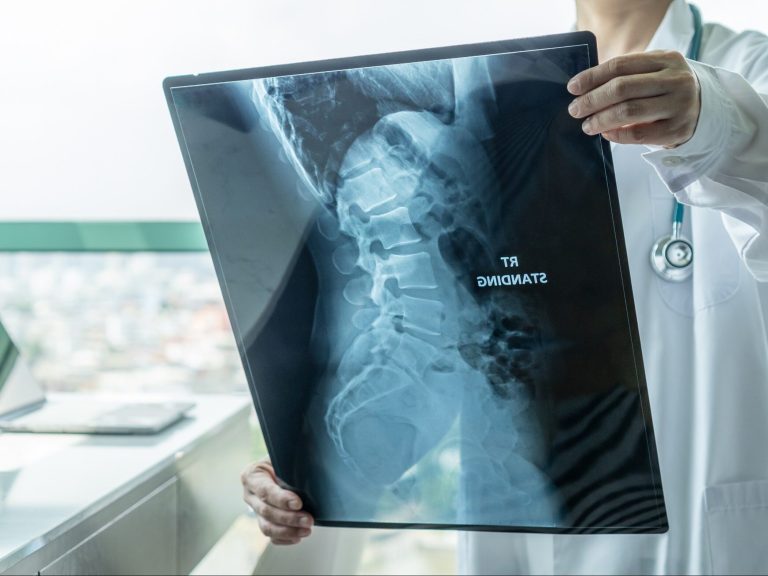Celiac disease – underestimated and often unfairly downplayed

Although it has been known for 2,000 years and is more common than breast or lung cancer, it still remains one of the most elusive and common chronic autoimmune diseases with a genetic basis. If undiagnosed and untreated, it can lead to disorders of virtually every system in the body: osteoporosis, anemia, fertility problems, cancer of the esophagus, throat or small intestine.
According to estimates based on European epidemiological data, approximately 380,000 people in Poland may suffer from celiac disease. Most, as many as 90-95%, unfortunately do not know about it. Those who know have to struggle with discrimination in many aspects of social life. On May 16, we will celebrate International Celiac Disease Day in Poland. This is an ideal opportunity to raise awareness and show support for people struggling with this condition.
Diet is the key to health
– Contrary to popular opinion, a gluten-free diet is not a slimming diet, a whim or a fashionable lifestyle. A strict gluten-free diet for the rest of life is currently the only possible form of treatment for celiac disease. The lack of social knowledge about the symptoms and consequences of celiac disease means that patients on a gluten-free diet are treated as people who have chosen their diet. Meanwhile, for celiacs it is not a choice but a necessity for life. It's time for public awareness about celiac disease to increase – points out Małgorzata Źródlak, president of the Polish Association of People with Celiac Disease and on a Gluten-Free Diet.
Celiac disease is a chronic, autoimmune, systemic disease with a genetic basis, in which, as a result of eating gluten, the immune system reacts incorrectly and results in damage to the villi of the small intestine. – In celiac disease, as a result of the body's reaction to gluten, the intestinal villi responsible for absorption are immunologically destroyed – explains Dr. Hab. n med. prof. Piotr Dziechciarz, Chairman of the Celiac Section of the Polish Society of Pediatric Gastroenterology, Hepatology and Nutrition. – As a consequence, nutrient absorption disorders and various clinical symptoms occur – he adds. Celiac disease can occur at any age and does not always manifest with gastrointestinal symptoms (such as abdominal pain, chronic diarrhea, flatulence or constipation), which makes its diagnosis very difficult.
– The symptoms of celiac disease can be very diverse. Often, the main symptoms of celiac disease are extraintestinal and non-specific symptoms, such as: anemia, osteoporosis, short stature, delayed puberty and fertility problems, joint pain, chronic fatigue, vitamin and mineral deficiencies, mouth ulcers, neurological symptoms (migraine, problems with balance, tingling, numbness or pain in the hands or feet), depression and unexplained chronic hypertransaminasemia (increased levels of liver function tests), Dühring's disease (skin type of celiac disease) and many others – explains Dr. Piotr Dziechciarz. – Celiac disease may also cause no symptoms and become apparent only when complications of the disease occur – he adds.
The consequences of untreated celiac disease (i.e. failure to follow a strict gluten-free diet) may include: increased risk of developing cancer of the digestive system, including the most common small intestine lymphoma and cancer of the esophagus and throat, osteoporosis, anemia and fertility problems.
A large percentage of Poles do not know that they are sick
– According to estimates based on European epidemiological data, approximately 1 population in Poland may suffer from celiac disease. Only about 5-10% of celiac disease patients are diagnosed, the rest do not know that they have the disease. Therefore, several hundred thousand Poles of different ages and genders may be exposed to complications of undiagnosed celiac disease or are treated for diseases that may be a consequence of undetected celiac disease by doctors of many specialties, thus generating significant costs for the state budget. These costs could be avoided if celiac disease was diagnosed at an early stage, emphasizes Małgorzata Źródlak.
Unfortunately, the average diagnostic odyssey for patients lasts as long as 8 years (from the moment symptoms appear until the correct diagnosis is obtained). – This is due to, among others, due to lack of knowledge about extraintestinal symptoms of celiac disease and failure to identify them with celiac disease – points out Paulina Sabak Huzior, vice-president of the Polish Association of People with Celiac Disease and on a Gluten-Free Diet. – Another barrier to early diagnosis of celiac disease is the lack of a basic diagnostic test for this disease in the scope of services provided by a primary care physician. As an Association, together with experts, we are taking action to change this. We hope this will happen, he adds.
– To diagnose celiac disease in adults, it is necessary to measure anti-tissue transglutaminase antibodies (anti-tTG) in the IgA class, total IgA level and a small intestine biopsy. It is performed endoscopically during gastroscopy. For a correct diagnosis, the doctor should take at least 5 samples from different parts of the intestine, including 1 from the duodenal bulb. In children, in some cases, gastroscopic biopsy can be omitted, but diagnosis using blood tests is more complex – emphasizes Dr. Piotr Dziechciarz.
The diagnosis of celiac disease is, on the one hand, a relief – the patient now knows what is the cause of his ailments, but also the beginning of a life revolution. This disease affects not only the lives of affected patients, but entire families.
Child illness
It is especially difficult when a child is sick. – Even though we have learned to live with this disease, practically our entire lives are subordinated to it. If we are planning a holiday trip, we should only go to places where we can prepare our own meals and have access to gluten-free products. If you go to a family celebration, do it only with your own provisions – emphasizes Karolina, mother of 7-year-old Julia, who was diagnosed with celiac disease at the age of 3.
– This disease excludes people from social and school life. Children with celiac disease are not provided with safe meals in school canteens, and cannot safely go on school trips, summer camps or other trips. They go to their peers' birthdays with their own cake and snacks, or they don't go at all. There is always a risk that the meal will be contaminated. And knowledge about celiac disease is scant. We constantly have to explain to everyone around us that even the smallest amount of gluten is harmful to our daughter, that you cannot cut gluten-free products on a board on which gluten-free bread has just been cut, that you do not outgrow this disease and that living without gluten is a necessity for us, not whim or following fashion – he adds with regret.
A gluten-free diet is currently the only form of treatment for celiac disease. It is also a very heavy burden on household budgets. – Gluten-free products are even several times more expensive than conventional ones, and there is no state support for celiacs. The entire burden of celiac disease treatment rests with patients and their families. As patients, we are discriminated against. And not only in terms of financial support, but also medical care. There is not a single clinic for patients with celiac disease in Poland, even though more people suffer from celiac disease than from breast cancer or lung cancer. There are no standards of patient care after diagnosis, and there are no diagnostic tests included in the package of guaranteed services. Patients also do not have the support of qualified dietitians. Downplaying the gluten-free diet and lack of knowledge mean that basic safety rules are not followed when preparing gluten-free meals in hospitals or sanatoriums, while even the smallest amount of gluten is harmful to the patient – points out Małgorzata Źródlak. – A patient with celiac disease is a patient who is not cared for by the health care system in Poland. It's time to finally change this, he appeals.
Demands for those in power
To make life better for patients with celiac disease and on a gluten-free diet in Poland, the Polish Association of People with Celiac Disease and on a Gluten-Free Diet has prepared a list of demands to the government, calling for:
-
the Ministry of Health appoints a team of experts who will prepare a program of comprehensive care for patients with celiac disease
-
extension of the guaranteed benefits package (within the entrusted budget) to include a diagnostic test for celiac disease, which could be ordered by a primary care physician
-
broader education of the medical community on diagnosis and monitoring of the disease
-
systemic support for patients and their families (e.g. tax relief) in the costs of diet treatment
-
defining the profession of a clinical dietitian who should be employed in health care facilities
-
development and implementation of nutrition programs tailored to the needs of patients with celiac disease and on other elimination diets in hospitals and sanatoriums, as well as education on the role of a specialized diet in the treatment process
-
introducing the topic of celiac disease and diet-related diseases as an element of health lessons in schools
-
introducing into the Education Law Act (Article 106a) the right of a child with celiac disease or on another elimination diet to a hot meal at school, combined with training activities in this direction
-
establishing an inter-ministerial team that will provide comprehensive support to patients with celiac disease and their families.
Celiac disease may be a master of hide and seek, but thanks to education and awareness-building, it has a chance to be “caught” at an early stage, before its consequences become irreversible and tragic. It is important that both patients, doctors and decision-makers, including Ministry of Health.
About the Association
The Polish Association of People with Celiac Disease and on a Gluten-Free Diet is the largest public benefit organization helping people on a gluten-free diet. We operate throughout Poland, we have active volunteers in several cities. For nearly 20 years, we have been disseminating knowledge about celiac disease and successfully turning Poland into a country friendly to people on a gluten-free diet.






